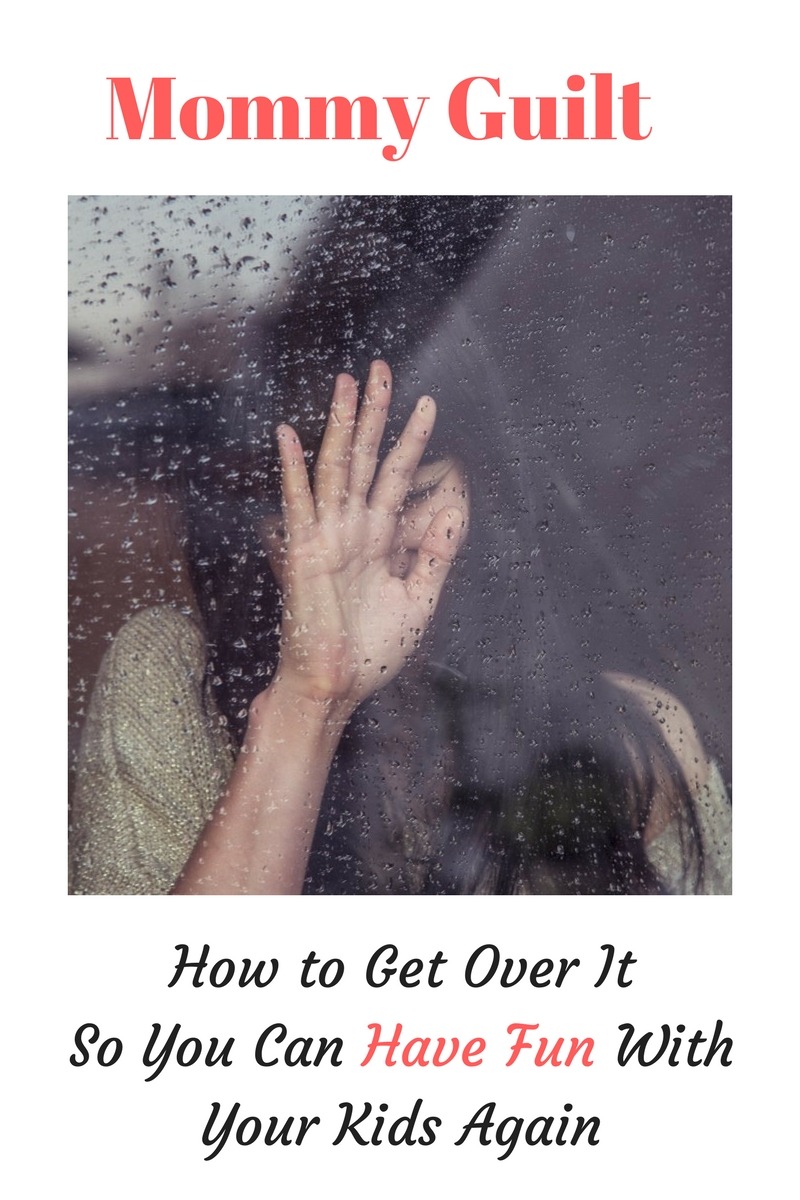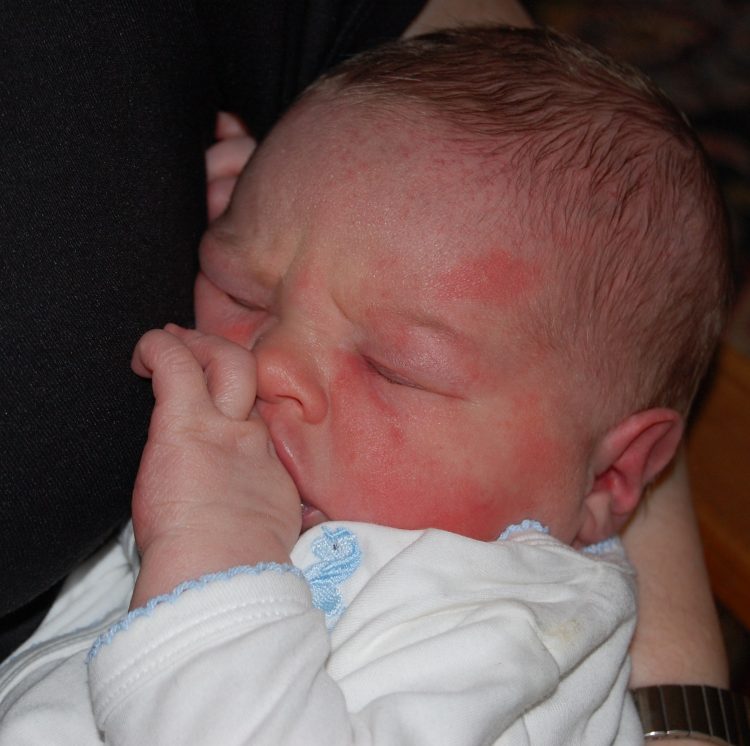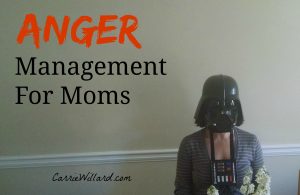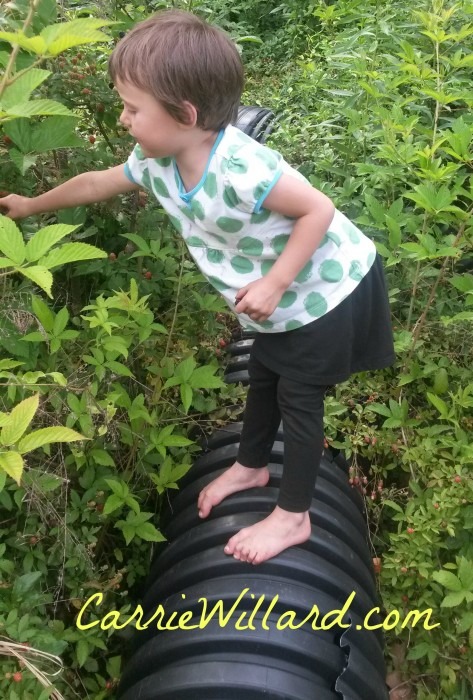The following is a transcript of an interview I recorded with Aviva Pflock and Devra Renner of Mommy Guilt. They join me to talk about their book Mommy Guilt: Learn To Worry Less, Focus On What Matters Most, And Raise Happier Kids. We discuss how guilt feelings are at an epic high in our time, and how to get over mommy guilt.
The insidious thing about mommy guilt is that it’s fairly impossible to avoid. Whether you’re a working mom or a stay-at-home mom, guilt seems to be modern mothering’s middle name.
When I was pregnant with my preemie, and for months afterwards, I was plagued with guilt. When I visited my newborn in NICU, something we both desperately needed, I felt guilty about my other 6 kids at home (and when I was at home, I felt guilty that I wasn’t at the hospital – see how it works!?). I felt guilty that he needed supplemental formula and that my body failed him because I couldn’t stay pregnant to term.
I remembered this interview from my old podcast back in 2006 (yes, a full decade ago!) and decided to republish it. Moms still need this message, maybe more than ever, as the problems our children (and we) face become more complex in these “interesting” times.
The other day at a coffee shop, I couldn’t help but overhear a mom talking on her cell phone. She had a huge medical research book sitting on the table in front of her and appeared anxious and worried. Once she started speaking, I heard her beg for assistance for her child, who she believed was experiencing selective mutism because she wouldn’t speak at school.
The worry was palpable in her body language and I wanted to do something to acknowledge her. When I got up to leave, I tapped her on the shoulder. “You’re a great mom. Your’e doing an awesome job!” was all I said. A humongous smile burst onto her face. I could see the relief in her eyes. “Thank you“, she said, with tears threatening.
I know that I know that I know that this mom is questioning and blaming herself for her child’s difficulties. She wonders if it was something she did or didn’t do.
Let’s all do what we can to stem the tide of mommy guilt. Just a suggestion: pat a mom on the back. We have the toughest job in the world, and we are doing our best.
Carrie: This week on Natural Moms Talk Radio I am joined by Devra Renner and Aviva Pflock, co-authors of the book Mommy Guilt: Learn to Worry Less, Focus on What Matters Most, and Raise Happier Kids . I read your book about a year ago. I was sitting there with my little newborn, my fourth, and it just felt like a big warm hug.
Aviva Pflock: Well, good. Because that is the way we wanted it to come across to people. It is an idea about reassuring and being encouraging and empowering. That is great that we hugged you.
Carrie: So what brought you together and made you want to write this book?
Aviva Pflock: Well, being moms, first of all, we found probably that the talk around the daycare centers, around the preschools, around the grocery store, was about all of these things: we were not sure if we were doing right as moms and there seems to be all of this guilt hanging over being a parent.
At that time, we grabbed a paper and pen and made up a survey and started surveying around the circles that we hang out in to see what kind of responses we would get to this feeling of guilt with parenthood and then being busy moms of young kids, with other things in life.
They literally sat on the shelf for 10 years and 10 years later, moms who are moms with older children, we were in different venues. Devra was now a social worker and I was working with families. I am doing home visits, facilitating different play groups, giving different discussions.
Mommy Guilt
We found that the talk was the same. There were still all of these guilt feelings associated with being a parent. Then we expanded the survey, we did this big internet survey. We were able to get responses from all across the country, even a few in other parts of the world. We found out that this guilt feeling was not just the people we were hanging out with. This was a serious issue that parents were dealing with.
We decided guilt really is not what parenthood is about. Let us try to have fun with this. We took the approach that parenting really is a gift that you give to yourself. You should be able to enjoy it!
So, we decided both to take the survey a step further and see what we can do with the answers and see what we can do to work with people that turn parenting back into a more enjoyable experience.
Carrie: I think that is an important message. I love how in the book you talked about how people are so wracked with stress and guilt when they have a newborn. They are so afraid to harm their baby, but if they just viewed it as: “I have this little person who acquires so very little and they are like a big old snuggly sweet smelling little present to me. I just need to relax and enjoy it.” It is like playing house. It is the ultimate fun thing. All they want is to be fed occasionally and stay warm and they live for you. They cry when you leave the room. I love that.
Devra Renner: Aviva likes to say that kids as newborns, their main goal in life is just sleep, eat, and excrete. That is what they do! You are along for the ride with them and trying to get accommodated. Getting to know each other is really important. Part of getting to know each other is utilizing yourself as that person to have fun with your baby, enjoy the idea of parenting, and to realize that your baby does not have the same viewpoint as an adult.
We say in the book that newborns do not go into your kitchen with you and say, “Hey lady, what about those dishes?” They do not notice that stuff. It is us who notices it, but if we just kind of see the world through our baby’s eyes we can realize that that is not what is important to those kids.
Carrie: Yeah, they don’t even care if you have brushed your teeth in the morning! That is a good point. I think that we misuse guilt, because guilt has its place in the range of emotions. If I know that I could not deal with the guilt of getting in a car accident and my children being harmed, I will make sure that my car seats are installed properly. I will have a car seat check-up or something like that. It makes us proactive.
But this idea that because we are less than perfect, that we have to wrack ourselves with guilt, it is not useful because it actually robs our children. It robs us and it robs our children, don’t you think?
The Problem of Being Consumed with Guilt
Aviva Pflock: Absolutely, yeah. We do talk in the book about — we are not saying your life is going to be guilt-free and you are absolutely right, it should not be guilt-free. That is a valid emotion and it absolutely serves the purpose, but when you are totally consumed by it and it begins to dictate your life, then yeah, you are sort of smothered under this constant feeling of guilt. Sure, your kids are going to pick up on that. Devra likes to say kids are like horses. They sense fear. They sense guilt. They sense all these emotions that are going on. It turns what could be a helpful learning experience into a negative experience because it is so all consuming.
Devra Renner: But that’s not say that you are feeling guilty that you are somehow damaging your child by those emotions. It is normal. That is a part of your normal range of emotion to be worried, to have anger, to have fear. All of these things are quite normal. What we are talking about is that debilitating guilt that prevents you from making decisions, your basic decisions that really would benefit you and enhance your life if you are able to make them without second guessing yourself.
Carrie: Like what kind of things come to mind when you are talking about those decisions?
Aviva Pflock: Well, I think we are talking about new parents that just try leave the baby alone for an hour.
Devra Renner: Like can I leave the baby in the care of someone else whether it is a dad or whether it is another family member or friend and take some time to go get my hair cut? Because there are people who freak out about that decision when they are consumed by the guilt. They are grabbed by the guilt. They get the guilt or what we like to say is their guilt-o-meter has been maxed out. They feel uncomfortable making any decision that is not as they would think baby-centric.
In reality, taking care of yourself is a very important part of being a parent. It also shows your children that when they grow up and they become adults, there are things that adults get to do. They need to learn how to be an adult and one of the ways they learn that is from you and watching what you do.

(Note: I completely agree with this! In fact, I’m on fire about it. I created this free ecourse to help moms find time for themselves again. You can access it here.)
Aviva Pflock: We are also living in a time where we are bombarded with answers to questions that maybe before we did not even ask because there are a million options out there. You can now sit down at your computer, you can go to the library, you can do so much research that, again, you feel like, “Oh my gosh, there are so many answers, what if I pick the wrong one?”
Devra Renner: Oh yeah, we call that paralysis by analysis.
Aviva Pflock: Part of our book was to say, “You know what, there are lots of options and the key is you are the only one who lives with your family. Devra and I will not move in with you. You don’t want to have to take care of us, too. Here are things that moms all over the place are doing. These are responses that we have gotten back and we are not saying this is the right answer, this is the wrong answer, we are saying these are options and nobody knows your family better than you do. Soak it all up. Keep what you want. Get rid of what you do not want. Your gut probably knows a lot more than you are giving it credit for.”
An Antidote to Mommy Guilt: Trusting Your Instinct
Carrie: I think it is difficult nowadays for parents to give themselves permission to use their intuition and their gut and because of that. We are overwhelmed with information. I like how you said; we have answers to questions that we did not even ask before. That is true.
There are so many things that we can learn about as parents and we have so many options. I will give you an example: our mothers and grandmothers did not feel guilty if they did not take the time to teach their baby sign language, but because we know about baby sign language, “Oh, if I don’t do that, I’m robbing my child“.
Now, it is great to know about baby sign language, if that is something that you want to do, but like you said we may not have asked that question, 40, 50, 60 years ago so because we have all of this information. It almost is a glut.
Devra Renner: We like to remind people that Einstein and Mozart succeeded without having Baby Einstein and Baby Mozart.
Carrie: That’s right, very true! I like how you two have a slightly different story and a slightly different style.
Aviva Pflock: Yeah, it worked well for the book. It really does.
Carrie: You were not like carbon copies of each other as far as your mothering style.
Aviva Pflock: Yeah, we thought it was important to bring that aspect into our book because we have over 1300 responses to our survey and we also included these stories that a lot of our survey respondents gave to us. We figured that these moms are sharing the truth of what their parenting is like so we will do the same thing. So, if there was some sort of point we are trying to make in the book and we did not have an anecdote from one of the survey respondents to use, we threw in from our own life. It would have been easy for us to make up a character and say this was her story, but we felt the three of us are moms with our own set of experiences as well, so why not make that contribution to our own book, too?
The Biggest Thing Moms Feel Guilty About
Carrie: Well, one of the things that, according to your survey, many parents feel guilt about, is screaming, raising their voice and yelling at their kids. You had some really good information to help parents to deal with that, to control that. Do you want to share some of that?
Aviva Pflock: We definitely found it interesting that the number one thing, generally speaking, that moms are feeling guilty about is yelling to her kids. Thee one thing that you really have ultimate control over is your voice. You can decide how loud you are going to be but stepping back, when you are in the middle of the situation, the easy knee-jerk reaction is yell. It makes head turn.
So, we talked a lot in the book about having a big toolbox of tools to choose from and part of that is, if it is not a safety issue, if it is not a danger concern, it is okay to take a few minutes and say to yourself if you have a very young child or even to your child “I’m not sure what I’m gonna do about this situation right now. Give me a minute to think about it.” The whole timeout thing as opposed to putting a kid in timeout because they have done something horrible, giving yourself a few minutes to think “okay, what’s the best way to handle this?”
See: anger management for moms
Devra Renner: Maybe I need to regroup, maybe I need to take a deep breath, maybe I need to sing a song to myself, maybe I need to whisper, completely just change the way I am talking to my child.
A whisper will get almost as much attention as a yell would. It certainly does not hurt as much to someone’s feelings to be whispered at as opposed to be yelled at because some of the time we yell because we are frustrated and finding out what it is that is frustrating us. Is it behavior from your children? Is it something that they are not listening to? Is it because you feel you have repeated yourself over and over again and then you just yell it?
Look at the situation too when you are not yelling. Because after we yell, I do not think most of us say, “Well, that felt really good. I’m really glad I handled it that way.” No. What happens is we usually feel even more mommy guilt because we raised our voice.
So, taking that time after you have yelled and when you are feeling lousy and kind of doing that personal inventory, actually sitting down and writing what was going on in that time that I was yelling, what was the scenario, what was going on, and thinking about and doing some brainstorming with yourself of other ways that you could possibly handle it. That way, you have those tools for the next time.
You may not have had them that time, give yourself a break. Our kids always say to us: “do over!”, but we do not really use that concept a lot when you are a grownup. I think in parenting it is really important to allow yourself a do over.
Aviva Pflock: Talking to your children about that — at the end of the day when things are hopefully quieted down a little; say, “You know? This is kind of a crummy day. I’m really sorry that things went that way. I’m sorry I yelled at you. We had this situation come up and I wasn’t sure what to do when we were both yelling at each other and it didn’t feel good, did it? How could we have handled it differently?”
Obviously, depending on the age of the kid, you would have to adjust that conversation, but apologizing to your child after you feel that is also teaching them a great skill that we all mistakes, we are all human, and sometimes we need to just face up and go “you know what, I screwed up. I’m sorry.” Let us figure out what we can do differently next time.
Carrie: That really is teaching them an incredible life skill, something that they can take with them with other relationships. That is very important.
Seven Ways to Drop the Guilt
Devra Renner: We offer seven guilt-free principles in our book. What is interesting is when we have gone and done presentations and speaking that moms ask us, “Okay, you have seven principles. Do we have to do them in order? What if we can’t do all of them?” The purpose of the seven principles was not to stress anybody else out or make them feel guilty. Certainly, Aviva and I will not be coming to your home to check, to see if you have done the principles and what order. Even if you do not do any of them, that is fine, too. They are just a way that we organized in the book to give some structure and help to those parents who may not be sure where to begin.
You may feel a little overwhelmed with the whole idea of talking about mommy guilt. So, this just of does a little bit of a roundup for the top issues that we saw in our survey that were creating the most guilt in moms. So, that is why we have the seven principles of mommy guilt and those seven principles are…
Aviva Pflock:
Number one, you must be willing to let some things go.
Prioritizing, the whole idea like we mentioned earlier, your newborn does not notice the dirty dishes, that kind of a concept.
(See also: letting go of what doesn’t work and homeschooling: letting go of should)
Number two, parenting is not a competitive sport, not getting caught up in “my kid walked at 11 months and my child has all these teeth…” And then also the idea of not using peer pressure to get your children to try something when they are young, and then when they are older telling them peer pressure is a terrible thing, and not to give into it!
Devra Renner: And also included in parenting not being a competitive sport, is not competing against the person you are co-parenting with. That also is an area that seems to produce a lot of angst in families when parents get to the same end but may use a different style to get there. Different styles are okay. Our kids learn the first grade teacher’s way. They learn the third grade teacher’s way. So, we know that they can adapt to different ways of doing things.
Carrie: Yes. When you talk about focusing on what truly matters, it reminded me of something that happened to me when my first was just tiny. I was sitting there in church. When you have this new baby, it is so difficult to get out the door. How do I shower? How do I get myself ready and him ready and get him fed and everything on time?
I was sitting there and I looked down and his little baby fingernails are dirty. It is amazing how a newborn can get such filthy fingernails, just digging their little fingers into your skin and stuff. I looked over at my mom and I have got tears in my eyes and I am like, “Mom, I can’t believe he’s got dirty fingernails.” She looked at me and she said, “Carrie, you’re going to take your children out many times and they’re gonna have dirty fingernails. Don’t worry about it.”
That is comical to me now, now that I have four kids, because I do not know how many times we get to the store or something and we are all climbing out of the car and I have to get the boogers and eye crunchies off of somebody’s face.
Devra Renner: Hold them down on the way in.
Carrie: Exactly.
Devra Renner: You have actually skipped over to one of our next principles, which is look toward the future and the big picture. Principle number three, do not become overly hung up on the here and now because the big picture is that most child protective referrals are not done for dirty fingernails.
In the big scheme of things, we think that some of our foibles or mistakes are horrible crimes and they are not, but they feel that way. We just kind of magnify them because with a new baby, you have got hormones crashing through you. You have got this changing your schedules, sleep deprivation, all of these things add to our feelings of inadequacy as parents. Looking at the big picture saying, “Okay, my child has been fed. I actually did get out of the house. These are good things.” Then principle number four is …
Aviva Pflock:
Learn to live in the moment.
It almost sounds like the opposite of the whole look at the future and the big picture, but really it complements it. The easiest examples for learning when and how to live in the moment is that little walks to the mailbox that you could do yourself in 20 seconds, taking your child with you, turning over the rock, getting those fingernails dirty, playing on the way, talking about all the things you see and enjoying each small moments because really our kids do not want to play with us for hours on end. They want undivided attention for five minutes to do something that they think it is the coolest thing in the world and then, “Mom, you’re not playing this game right. Go away.” So, enjoy those little moments with them.
(See also: A Little Thing Called Benign Neglect and How Not to Hate Parenting)
Devra Renner: Then number five is: get used to saying yes more often and being able to defend your no.
That is a big deal because sometimes we are worried very much about how someone else is holding our baby, how they are positioning them, is the baby comfortable. All of these things that we are worried so much about how the other person is holding them, we are not enjoying the fact that we have some moments to ourselves, where somebody is not attached to us and not hanging on us that we can maybe run to the bathroom by ourselves or something like that.
It is important to say yes if the situation is not going to be something that is going to be harmful or unsafe. As our kids get older, if we reserve no for the big stuff, for the things that truly matter the most and we are not using no just as a knee-jerk reaction because it is easy to say, our kids will realize the impact of the no. They will not try to wear us down as much and beg or manipulate as much. They will still do it, absolutely, that is part of being a kid and learning how to be independent, but when your kids know that you mean no, I think that they are more apt to be appreciative of that and respect that boundary that you are setting. Also, when you are saying yes, you will definitely go up a few notches in that, “My mom is cool. She is a fun person. She wants me to have fun.”
Aviva Pflock: It is very encouraging to kids with your yes. A lot of times they will say some things like, “I want to go paint.” It is easy to say no and then this great vision they have of all this imagination they were going to play with and have a good time with, it is kind of crushed with one word. Whereas even though no would be easier because there is no mess, giving them that yes and saying, “Okay, it is nice out. Go outside and paint so I won’t have to worry so much about the mess. When you’re done with this we’re gonna put it away.”
You are giving them skills about setting up that controlled environment, cleaning up, and you are also giving them that positive feedback of “I had an idea that was really cool and that’s being supported. I can go do this now. I can try something that I think is going to be fun.”
Carrie: Yeah, I remember that point from the book and like you said it is easier to say no, but when we say yes we can also open up dialogue with our children and help them to understand our feelings as well. It may be, “Oh, I’d love for you to paint. Make sure that you put down some newspaper on the table first so that mommy doesn’t have a big mess to clean up,” or something like that.
If we are really feeling tired and we want to say no, instead of saying no as a knee-jerk reaction we might set some boundaries with it like “Oh, sure you can. Promise me you will clean up after,” or something like that to help them understand “everything I do also affects mommy and what I do affects the people around me.”
Devra Renner: Number six is laugh a lot, especially with your children.
My favorite example is this: I think in our society we worry a lot about the discipline of our children, the decorum, how people are civil to each other outside of our home, and how our children act in public. I think one of the big issues that people said they felt guilty about was when their children misbehave in public and they are being given the evil eye in grocery stores because their children are whining or tantruming.
One of my favorite examples about laughing a lot with kids is about discipline. Not that discipline is funny, but you can use your sense of humor. One of my favorite examples of that is my son and I when he was 3, we were in a grocery store and he was going to have a tantrum. It was pretty clear that he was winding up to do this.
There was a man down at the end of the aisle trying desperately to find what he needed and get out because he knew that storm was coming. Well, I went over to my son and I just said to him quite simply, “Hey, what did Mick say?” My son looked up at me from the floor where he had thrown himself and he got up, grabbed my hand, we start walking down the aisle, and this man looks at me and he says, “I just need to stop you for a minute, who is Mick? Why does he have so much power?”
I explained to him that when my son was an infant and he would cry and I wanted to know why are you crying, what do you need, I do not know to make myself feel better I would sing the song “You Can’t Always Get What You Want” by Mick Jagger of the Rolling Stones. As my son got older, I started singing it to him. “Yeah, you cannot always get what you want, you try sometimes, you just might find, you get what you need.” That is what Mick Jagger says. Good enough for Mick. It is good enough for us. It is great.
So, it got to the point where by the time my son was 3, all I needed to say was: “What does Mick say”? He knew I was referring to that song. He knew he needed to knock it off. This guy looks at me and he says, “Mick Jagger as parenting tool?”
Carrie: Anything can be a parenting tool.
Devra Renner: Whatever works! You utilize what works and then 10 years later we were watching the Super Bowl last year. Mick Jagger and the Rolling Stones performed at the Super Bowl. We were watching on TV. My 10-year-old is sitting t here with me and he looks at me, he sees that it is Mick Jagger, and he says to me, “Oh no, kids don’t like Mick Jagger.” I said, “Why?” He said, “Because he doesn’t let them get what they want.”
So, it became an inside joke. It is really important to establish some of these things with your kids because as they grow up, the joke changes, and it is still funny, yet the point is still there. It helps. It helps a lot. It relaxes parents and it relaxes your kids, too, when are disciplining them to remember that a sense of humor is a really important parenting tool.
Then the last one is make sure you set aside specific time to have fun with the family. Sometimes people freak out about that because they think that we are trying to tell them that you need to schedule yet something more with your family. That is not what we mean. Aviva, you want to expand on that?
Aviva Pflock: Sure. My favorite example of that is my son last summer we were trying to figure out what to have for dinner. It is the great dilemma in my house. What do we eat tonight? He says, “Let’s have a picnic.” I am like, “Sounds great, what do you want?” All he wanted was peanut butter and jelly sandwiches. Well, family of five, picnic out on the lawn, no dishes, no cleaning, no cooking, and that was just a fun way to have dinner. It did not take any extra time. It saved us lots of time, quick and easy, but it was something fun that we did together as a family. It was just part of something daily that has to get done anyway.
Again, it is sort of finding those moments and enjoying them. It does not need to be a vacation to Mexico. It could be a sleepover in your family room. The whole family decides to sleep in the family room and watch movies and eat popcorn and just have a good time together.
Devra Renner: It can be as simple as during the hurricane hour when you are getting a meal prepared, when everyone is either coming back from the end of the day or if you have been home with the kids all day, I do not think anyone really says the hours between 4:00 and 6:00 are their favorite time to be a parent because it is crazy. You are trying to get a meal put on the table. What we like to do is throw on the music and really dance around our kitchen while we are preparing food. It is a lot of fun. We dance, we sing, we talk, and like Aviva said it is not adding more time. It is something we were all really going to do. We got to eat just like Aviva said.
Carrie: I was reading something the other day talking about the problem that we have in our society. It is called affluenza. Parents are working so hard to provide a lifestyle and the interesting thing is when their motives are queried, most of the time the bottom line feeling that they want to get out of this crazy schedule is that they want to feel closer to their family.
For instance, daddy will work overtime to afford the boat. He wants the boat so that he can have these leisurely fishing trips with his kids. His motive is good, but it turns out that he cannot get what he wants. He cannot get that feeling because he is gone all the time. By the time he can get the boat, the children are kind of detached from him.
I thought we can have that feeling and we can get that end result without all of that work because children really have simple needs like you mentioned the peanut butter and jelly on the lawn. Most kids would rather go to the park and kick a soccer ball with dad than to have some elaborate expensive vacation that he might be working hard towards. Do you say stop stressing and start enjoying your children? I think that is such an important message.
Devra Renner: Also getting behind the idea that we got rid of child labor in the country, sweatshop hours for children. With did that with child labor laws. Now that we can work 24 hours, seven days a week, thanks to the technology of computers and everything else, we have now contributed those sweatshop hours to our adult life and it is crazy. We are all sleep-deprived. I think our country is very grouchy because we are tired.
Carrie: Thank you so much for talking today with me and I have enjoyed our conversation and I really loved your book.
Aviva Pflock: Thank you. We enjoyed being here.








I’m not a mom yet myself, but my mom talked a lot about her own mom guilt. She had it pretty easy–just two kids–but she did work full-time, and I know it bothered her. We were pretty independent so it never bothered us, but I know she struggled with wanting to be at home with us, even when we were teenagers.
Oftentimes I know mom guilt can have financial implications (taking the kids for ice cream out of guilt, buying them toys because of guilt). It’s important to remember you’re setting pressures on yourself and in reality you’re doing just fine. You aren’t scarring your children; you’re doing the best you can. 🙂
Sooo very true! I totally ruined my savings more than once buying guilt presents for my kids.
I’m not a mom yet, but I know it is so true that you have to carve out time for yourself and your hobbies in order to give yourself fully to the things that need your attention. Otherwise, we will be far too burnt out to do our best and then the cycle of guilt will only continue!
Mom Guilt IS my middle name! I have the worst insomnia because of it! I loved all of these tips, especially “live in the moment”. I think I spend so much time thinking about what I need to do and so much time worrying whether I did enough that I forget about the right now! Thank you for this!
oh goodness, that’s no good! Have you tried spray-on magnesium oil? It’s lovely at night, and helps insomnia AND anxiety.
so, so true 🙂
I love the quote that guilt is not what parenting is all about- that’s perfect! My major struggle right now is learning to say no, and then defending that no, like you mention. Great post with a lot of good information for mamas- thanks!
I have been terribly depressed and guilt laden lately. Reading some of your linked posts helps me remember that I need to find something I enjoy and find myself again. This fourth baby sent me over the edge of too many needs. I love your blog posts. I am going to read benign neglect again if I can find it. I have share it with others in the past. Thanks for blogging!
Amber I’m so glad to hear it’s helping! I’ll email you the link to Benign Neglect 🙂